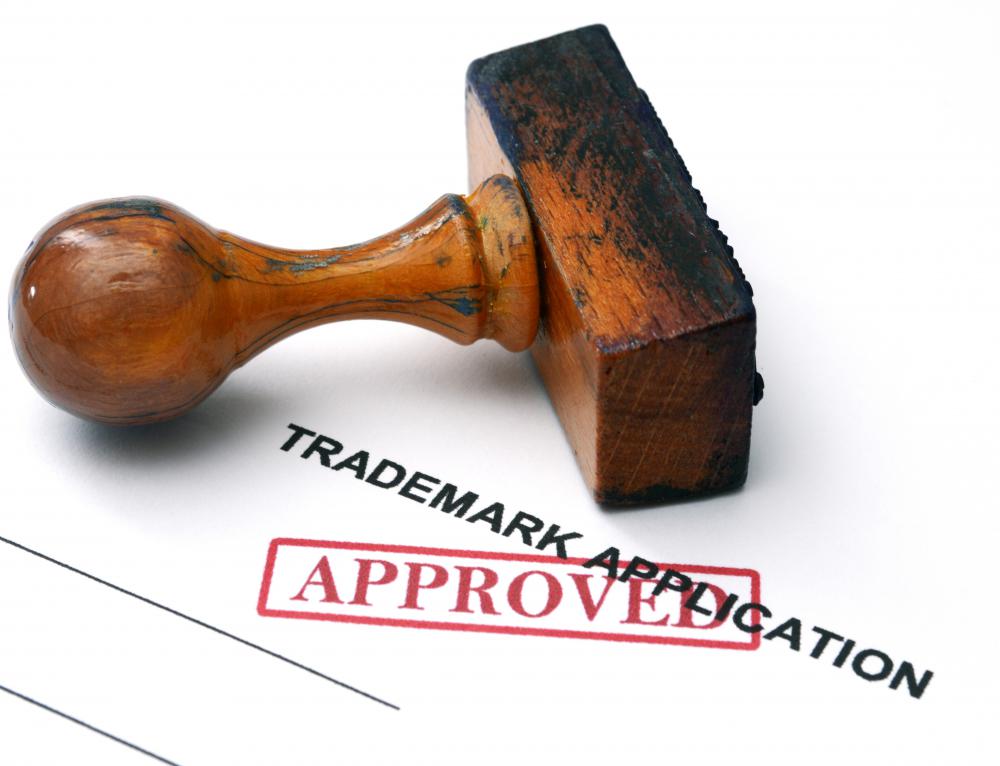At WiseGEEK, we're committed to delivering accurate, trustworthy information. Our expert-authored content is rigorously fact-checked and sourced from credible authorities. Discover how we uphold the highest standards in providing you with reliable knowledge.
How do I Handle a Trademark Dispute?
The best way to handle a trademark dispute depends on how it occurred and how much damage was done to a company or its brand. If your trademark was violated, you can ask the offending party to cease using it, file paperwork with a government agency that oversees trademarks or seek legal representation and pursue a lawsuit. If you receive notification that you have used someone’s trademark unlawfully, take it seriously and try to diffuse or correct the situation, if possible, before it escalates into a lawsuit.
A trademark generally refers to a slogan, design or other indicator that carries a distinct identity for a person, business or other organization. A trademark is often used as a marketing tool for products or services. Laws concerning trademarks can vary by country and tend to be complicated. If you are involved in a trademark dispute that appears to be escalating into a lawsuit, it is best to seek qualified legal counsel.
Before engaging in a trademark dispute, try to determine on your own if an obvious violation has occurred. It might be possible to legally use trademarked material in certain cases. One example is referencing a trademark during an article.

If written material in some way damages the trademark by making unfounded allegations about a company, fair use provisions might not apply. This is especially true if the material is inflammatory toward the trademark or is factually incorrect. If a company or individual believes that it has sustained significant damages, a lawsuit is likely to follow.

A trademark dispute can be handled by contacting the person or business believed to be misusing the trademark. Sometimes, the situation can be resolved by sending a letter that asks the offending party to stop using the trademark or to properly attribute it in the future. It is possible that no ill will was intended. If no satisfactory response is given, additional legal action might be warranted.
Sometimes ill will is intended toward a trademark. Someone might start a website that criticizes trademarked material. If false accusations are made and the company suffers losses, a lawsuit will often ensue.
Some attorneys specialize in handling trademark disputes. They are often consulted if a party is seeking a large monetary settlement or if the case is high profile. One thing to consider is whether seeking a legal settlement is cost-effective and will benefit you as much as the law firm that seeks the settlement.
Being at either end of a trademark dispute should be taken seriously. Trademarks disputes can carry costly legal fees. Some high-profile trademark lawsuits have carried on for several years.
Both parties involved in a trademark dispute should protect themselves. If your trademarked material is being misused, you have every right to defend it. On the other hand, the best way to avoid being hit with a trademark lawsuit is to always properly attribute any trademarked material used. Of course, the absolute best defense is to simply not use trademarked material at all.
AS FEATURED ON:
AS FEATURED ON:












Discuss this Article
Post your comments